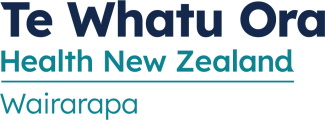“Our aim is for people to feel confident and able to ask the questions that matter,” says Anna Cardno, communications manager and project lead. “Life is tough sometimes. It is not always apparent when people are really struggling and often even when they are, they don’t know how to ask for help.”
“We want to make it easier for friends, family and the neighbour down the road to feel okay to ask the right questions when we think someone might be in trouble,” Ms Cardno explains. “Starting a dialogue can be all it takes and our aim with Too many, Wairarapa
is to simplify those conversations for people. Asking someone if they’re okay might just be all it takes to change a life.”
There is a lot of mental health and depression messaging out there but Too many, Wairarapa aims to bring suicide prevention awareness to a local level.
“This is very real, on our doorstep, and we need to be more aware and more equipped. We need to make a difference,”Ms Cardno said.
If you're worried that someone might be thinking about suicide, don't be afraid to ask them directly.
If someone has thoughts or feelings about suicide, it's important to take them seriously. It can be really hard to tell someone you care about that you are feeling suicidal. If someone tells you they are thinking about suicide, thank them for telling you. Invite them to keep talking with you. Let them know there is professional help available to them and encourage them to access it.
A person who is thinking about suicide might not ask for help, but that doesn’t mean that help isn’t wanted. They might feel
ashamed of how they're feeling, like they don't deserve help, or like no-one can help them. People who feel suicidal often feel like they are alone and that their family, whānau and friends would be better off without them. Most people who attempt suicide don’t really want to die, they just want their troubles to go away and often can't see another way out.
Lots of people feel suicidal at some time in their lives. Getting support, being listened to, finding a connection and a
sense of purpose can help them to find a way through.
If you know someone who may be in trouble, literally take a minute. Ask the question. It just might change their life.
In a crisis or emergency
If someone has attempted suicide or you're worried about their immediate safety, there are several options available:
- If they are an immediate physical danger to themselves or others, call 111 and stay with them until support arrives. Make
sure you are safe. - Keep them talking. Stay calm and let them know ou care. Listen and ask questions without judging.
- If they are not in immediate danger but they are needing help, call your local mental health team 0508 432-432 or go with them to the emergency department at Wairarapa Hospital.
Some useful free phone helplines
These 24/7 free phones are operated by trained counsellors who can help you talk through problems and identify ways of coping.
- Lifeline:
0800 543 354 - Kidsline:
0800 543 754 54 (0800 KIDSLINE) supporting under 18 yrs - Youthline:
0800 376 633, free text 234 - Whatsup:
0800 942 8787 (supports 5-18 yr olds, 1pm-11pm) - Women’s
Refuge Crisis Line 0800 733 843 - Depression
Helpline: 0800 111 757 - Samaritans:
0800 726 666 - Healthline :
0800 611 116 - Outline NZ 0800 688 5463 (0800 OUTLINE) sexuality and gender identity
issues

